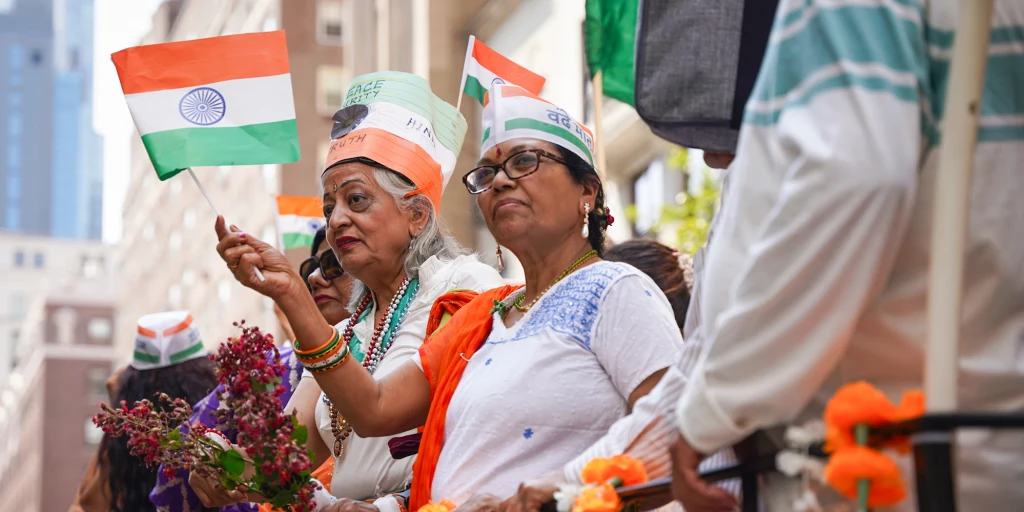A float celebrating the Ram Mandir, a Hindu temple built on the site of a demolished mosque in India, has caused controversy ahead of New York City’s India Day Parade. The Indian American Muslim Council and other religious groups have raised objections, arguing that the float symbolizes the destruction of mosques and violence against Muslims in India.
These organizations have urged parade organizers to remove the float, claiming it promotes Hindu nationalist ideology and fuels anti-Muslim sentiment.
In their objections, these groups have written to New York Governor Kathy Hochul and Mayor Eric Adams, expressing concerns that the float celebrates religious supremacy and bigotry. They argue that the inclusion of the Ram Mandir float conflates Hindu nationalism with Indian identity, rather than showcasing the country’s diverse culture.
The opposition asserts that the float is not merely a cultural display but a troubling celebration of a contentious religious history, particularly harmful given the strained relations between Hindus and Muslims in India.

Ram Mandir Float Sparks Controversy Ahead of NYC’s India Day Parade
Despite the calls for removal, the Federation of Indian Associations, which organizes the parade, has defended the float. Ankur Vaidya, the chairman of the organization, emphasized that the float is meant to honor an important religious landmark for millions of Hindus and does not endorse violence or hate.
He reaffirmed the parade’s commitment to peaceful coexistence, stating that the event has always featured floats representing various faiths, including Muslim, Sikh, and Christian communities.
Vaidya further highlighted the inclusive theme of this year’s parade, “Vasudev Kutumbakam,” meaning “the world is one family,” which aims to promote unity and harmony.
The India Day Parade, now in its 42nd year, is one of the largest outside India and celebrates the country’s independence with grand displays of culture and performances by Bollywood celebrities and Indian sports figures. Tens of thousands of people typically attend the event on Manhattan’s Madison Avenue, marking a festive celebration of India’s independence from British rule in 1947.
The Ram Mandir, which is being celebrated in the float, is a highly symbolic and controversial temple. It was built on the site of the 16th-century Babri mosque, which was destroyed by Hindu nationalists in 1992, sparking religious tensions in India.
The temple’s construction, which began in 2020 after years of legal battles, cost $217 million and holds deep religious significance for Hindus. In light of the controversy surrounding the parade, Mayor Eric Adams has stressed that New York City has no place for hate and affirmed that any float or individual promoting hate should not be part of the event.
